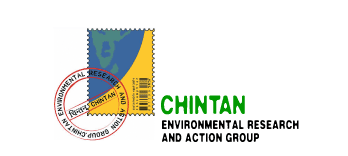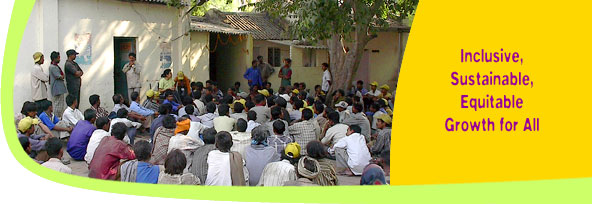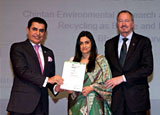|
|
|
FEEL FREE to download and use materials or information
on this website. Just let us know when
and where you are using it!
|
Welcome to Chintan!Chintan works for environmental justice in partnership with people and groups from diverse sections of society. Our focus is on ensuring equitable and sustainable production and consumption of materials, and improved disposal of waste. An important part of this is ensuring green jobs, security and dignity for the urban poor, many of whom earn a living as waste recyclers. Our initiatives include research, campaigns, policy interventions, building capacity among those engaged in recycling, and creating awareness about the need for reduced consumption and better waste management among the middle and upper classes. While all of Chintan's work is anchored in grassroots partnerships with organizations of the urban marginalized like wastepickers (ragpickers) and kabaris, we also work closely with policymakers, students, parents, teachers, elected representatives, municipalities, residents welfare associations (RWAs) and the police. Here's why we do what we do:Like most of the developing world, India is being transformed by both globalization and urbanization. (According to some projections, by 2030, not only will 50% of India be urbanized, but, along with China, it will also be home to 50% of the world's slums.) Many urban Indians, especially those from the middle and affluent classes, have become fervent consumers in the last two decades, leading to a quantum leap in the demand for resources and intense pressure on the environment. Most Indian cities are run on the work of the informal sector, which includes the 1% of an average city's population who recycle waste and reduce pressure on the environment. Their work helps clean up our cities by recycling approximately 20% of the waste generated. And yet, recyclers lack formal recognition, equal rights, secure and safe livelihoods and dignity. And as consumption patterns change with a growing economy, their work exposes them to ever higher levels of pollution and dangerous toxins. India produces 42 million tonnes of waste annually. With rapid urbanization, this will only multiply—as will the number of people handling it at considerable risk to their health. Managing waste, ensuring sustainable consumption and a healthy environment for every citizen, and ensuring just and safe working conditions for waste handlers are, therefore, urgent challenges. Ongoing Initiatives |
SearchChintan wins the Human Rights Special Mention Award of the French Republic's 2013The French Republic has awarded Chintan with the prestigious Human Rights Special Mention Prize for its success in giving a voice to the poorest of the poor, India's wastepickers and kabaris. Chintan wins the United Nations-BMW Intercultural Innovation Award
Chintan was awarded the Intercultural innovation Award at a ceremony in Vienna, Austria |




